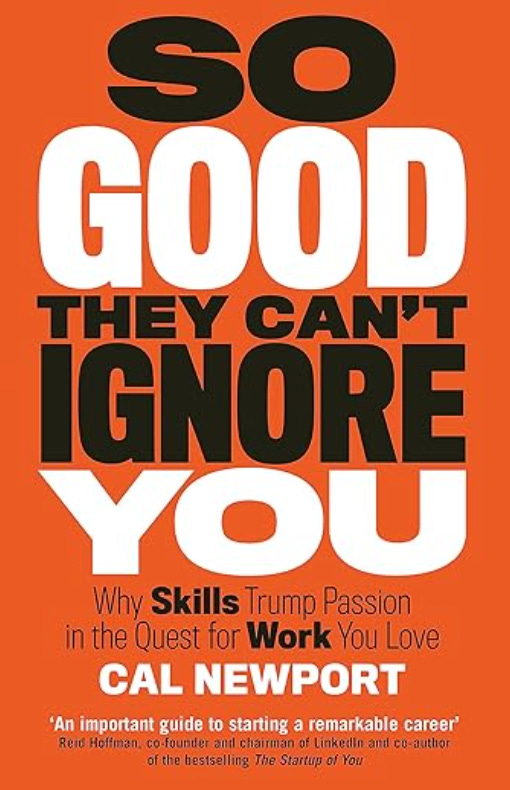💹 Career Strategy #15: Arbitrage
How to double, 10X or even 100X your standard of living with one career move.
Welcome back to Fuzzy’s Career Strategy Series, where we share research-backed strategies & stories to help you realise your best career.
Part 1: 👋 Introducing the Career Strategy Series
Part 2: 🪜 Ladder Climbing as a Strategy
Part 3: 👩🎓 Controlled Supply as a Strategy
Part 5: 🔍 Niche-ing as a Strategy
Part 6: 🧱 Skill-stacking as a Strategy
Part 7: 👷 Be A Generalist as a Strategy
Part 8: 📊 The Portfolio Career as a Strategy
Part 9: 📣 Building a Platform as a Strategy
Part 10: 🌊 Wave-surfing as a Strategy
Part 11: 🏗️ Adding Leverage as a Strategy
Part 12: 🌏 Proximity as a Strategy
Part 13: ⏱️ Sequencing as a Strategy
Part 14: 🧪 Optimising for Discovery as a Strategy
Part 15: ⚡ Do What Gives You Energy as a Strategy
Part 16: 💹 Arbitrage as a Strategy
⚡ Introducing… arbitrage as a career strategy.
Arbitrage isn’t just for finance.
It’s for life—finding where your skills or resources are undervalued and taking them where they’re worth more.
A career arbitrage can transform your quality of life more quickly and dramatically than any other strategy we’ve discussed in this series 🚀
Let’s illustrate with a story (Lucy here, by the way!):
A couple of years ago, a friend of a friend approached me for one-on-one coaching to support a salary negotiation. They had extensive experience in the charity sector, running highly effective programs for these mission-driven (often cash-strapped) organisations. Now, they were transitioning into their first role outside the sector: overseeing similar programs at a large bank.
But they made a critical mistake.
When the recruiter asked about their salary expectations, they panicked and named a figure—$90,000—that was higher than anything they had ever earned. It seemed like a bold move at the time.
They aced the interviews and reached the salary negotiation stage.
But after speaking with a friend and doing some research, they realised the corporate market rate for their role was $150,000—over 60% higher than the amount they’d initially proposed.
This points to the insight at the heart of career arbitrage:
The same problem solving skills can be worth dramatically different amounts depending on the market you sell them in 💸
We eventually worked together to help them walk back their initial ask, reframe the negotiation and secure the full $150,000 salary.
But the big takeaway was this: achieving that kind of pay increase overnight would be nearly impossible using most other career strategies, but by changing markets, you can achieve a dramatic uplift in one move.
This principle of arbitrage can be applied in a number of ways - where you sell your skills, where you spend your salary, or how you allocate your time.
In this post, we’ll explore three forms of career arbitrage that can revolutionise your relationship with work—and dive into a fascinating case study with Steven Bartlett.
So let’s get started!
⚙️ How it works.
In essence, arbitrage is about working smarter, not harder, by leveraging differences between markets to your advantage.
What is arbitrage in the traditional (financial) sense?
The term ‘arbitrage’ originally comes from a kind of trade people make in financial markets: the simultaneous purchase and sale of an asset in different markets to exploit tiny differences in their prices.
Here’s an example of a financial arbitrage 💰
The stock of Company X is trading at $50 on the New York Stock Exchange (NYSE), while, at the same moment, it is trading for $50.10 on the London Stock Exchange (LSE).
A trader can buy the stock on the NYSE and immediately sell the same shares on the LSE, earning a profit of 10 cents per share.
The trader can continue to exploit this arbitrage until the specialists on the NYSE run out of shares of Company X’s stock, or until the specialists on the NYSE or the LSE adjust their prices to wipe out the opportunity.
In the meantime, they could run that trade one million times, and make a $100,000 profit, with almost no risk.
So, typically arbitrage trades in financial markets are about 👇
Creatively spotting a small pricing difference (or ‘market inefficiency’),
Acting quickly to exploit it and make a profit before the window closes.
And arbitrage can be even more powerful in the markets where we sell our time a.k.a. ‘labour markets’ 👷♀️
While there are traders all around the world dedicated to spotting and closing even the tiniest financial arbitrages, there are many structural factors that keep labour market arbitrages open indefinitely - and few individuals who are out there taking advantage of big market differences.
So while financial market arbitrages involve exploiting a tiny difference and doing it at high volumes, an individual can improve their standard of living by 2X, 10X, or even 100X through a single career arbitrage.
💹 3 types of career arbitrage.
1. Skill arbitrage ⚒️
Solve bigger problems, because they pay better.
What it is: Change problems you solve to earn more with the same skills.
Why it works: Different organisations work on different problems, for different customers - and the value you create by solving those problems is linked directly to the value you can generate for them.
What can it look like:
Changing from non-profits or government into the private sector,
Changing from working for a cash-strapped small business to a large enterprise with millions of customers,
Identifying critical moments of value creation in a company’s life & positioning yourself to unlock them with your skills.
Case study: Steven Bartlett (Diary of A CEO podcast host)
A note from Lucy: the Diary of A CEO podcast can have clickbait-y episode titles, and it is not a reliable source on health information, but I think the story which Steven Bartlett, the host, tells in this episode is a fantastic example of a skills arbitrage. It has stayed with me since I first heard it, and I think you might benefit from it as well.
Go to 01:36:20, where he begins explaining how he re-applied his digital marketing skills from helping small e-commerce businesses acquire customers, to marketing the IPOs of biotech companies about to go public to millions of potential retail investors, with dramatically different results.
2. Geographic arbitrage 🌏
Live somewhere cheaper, because your money goes further.
What it is: Increase your quality of life by moving geography 🧳
Why it works: The internet. If you have the ability to work remotely and continue earning your current salary while living in a low-cost jurisdiction, you can dramatically lower your personal expenditures which living an equivalent or better quality of life.
What can it look like:
Moving within a high-income country or between high-income countries e.g. shifting from a shoebox apartment in an expensive city like San Francisco to a multi-bedroom house in a cheaper city like Portland or Berlin,
Moving from a high-income country to a low-income or middle-income country e.g. from San Francisco to Bali or Nairobi, where you can live in on the beach for a fraction of the cost, or
Moving cities to spend less time earning - freeing yourself from needing to work 5 days a week to maintain your lifestyle, and allowing yourself 3-4 extra days per week for your passions.
3. Time arbitrage ⌛
Allocate your time to higher-value tasks & outsource the rest.
Every hour of your time has a cost:
An obvious per-hour cost, which is your wages divided by number of hours worked, and
A less obvious cost in terms of opportunity - the uplift you could have created by using it on the most valuable activity or task instead.
Getting more from your time is the point of time arbitrage!
What it is: Allocating your time to the highest value activities you can, while outsourcing or delegating low-value or less specialised activities.
Why it works: The same underlying drivers for skills and geographic arbitrage create opportunities here - differences in pricing between markets and geographies - as well as technology and tools.
What can it look like:
For example, let’s say you run a small business.
You could do your own business admin (e.g. sending invoices, paying bills, doing data entry and the like), but it’s a low-value use of your time compared to winning big clients or growing the business.
Instead of doing it yourself, you could:
Hire a local assistant, working on a more moderate hourly wage, or
Hiring a remote assistant based in a lower-cost jurisdiction, working on a good hourly wage for their market, or
Automate the process using a software tool, paying a small monthly subscription fee.
If there is one person most associated with the idea of time arbitrage, it is the productivity and lifestyle design expert Tim Ferriss - who first became famous for his book advocating this approach, The 4-Hour Workweek. More on that book and similar recommendations at the end of the post!
🧠 Keep in mind.
A few considerations to note before you choose this strategy.
⏰ Not all arbitrages last forever: Exploiting market inefficiencies drives those markets closer to efficiency - so think about how you and your labour markets might evolve over a multi-year timeline.
🌞 Long-term career development: Prioritising arbitrage opportunities may yield quick wins, but may undermine the kind of long-term career growth you receive from being present at a head office with mentors who are invested in developing your skills.
😥 Paradise can be lonely: Remote work can lead to isolation, cultural disconnection and time zone issues with teams or clients.
✅ Quality control matters: Outsourcing key tasks, even if it saves you time, may compromise quality unless you engage in proper oversight.
Interested in reading more about concepts of lifestyle design? 🎨
Tim Ferriss’ The 4-Hour Workweek. Ferriss advocates designing a fulfilling career and life by leveraging the principles of automation, delegation, and lifestyle design. Read here.
A few of his key recommendations 👇
“Ask yourself: What can I delegate? What can I outsource? What can I stop doing altogether?”
“Don’t spend time on something that someone else can do better or for less money.”
“If you can hire someone to do a task (even 95%) as well as you for $50 an hour, and your time is worth $100 an hour, you should outsource it.”“Never automate something that can be eliminated, and never delegate something that can be automated or streamlined. Otherwise, you waste someone else’s time instead of your own.”
Rolf Potts’ Vagabonding. Potts emphasises long-term, budget-conscious travel as a way to experience freedom and self-discovery. Read here.
Jacob Lund Fisker’s Early Retirement Extreme. Fisker advocates for drastically reducing expenses and high early savings rates to achieve financial independence. Read here.
Cal Newport’s So Good They Can’t Ignore You. Newport advocates developing scarce and valuable skills which enable you to negotiate for autonomy, flexibility and higher pay. Read here.
Found this helpful?
We created this series to help people realise their best careers - so if a post really resonates with you, we’d love you to share it! ✉️
Keen for more? Check out the other posts in the series 👇
Part 1: 👋 Introducing the Career Strategy Series
Part 2: 🪜 Ladder Climbing as a Strategy
Part 3: 👩🎓 Controlled Supply as a Strategy
Part 5: 🔍 Niche-ing as a Strategy
Part 6: 🧱 Skill-stacking as a Strategy
Part 7: 👷 Be A Generalist as a Strategy
Part 8: 📊 The Portfolio Career as a Strategy
Part 9: 📣 Building a Platform as a Strategy
Part 10: 🌊 Wave-surfing as a Strategy
Part 11: 🏗️ Adding Leverage as a Strategy
Part 12: 🌏 Proximity as a Strategy
Part 13: ⏱️ Sequencing as a Strategy
Part 14: 🧪 Optimising for Discovery as a Strategy
Part 15: ⚡ Do What Gives You Energy as a Strategy
Part 16: 💹 Arbitrage as a Strategy













